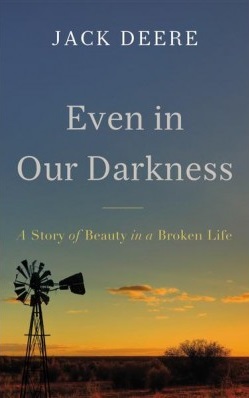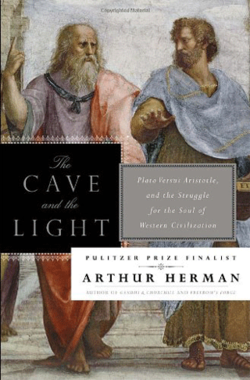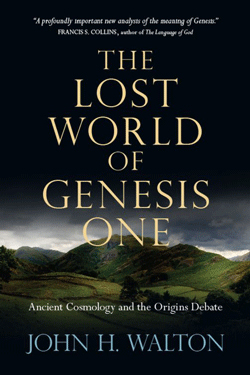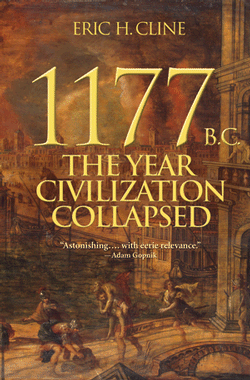 Ruta Sepetys,
Ruta Sepetys,  baltic states,
baltic states,  genocide,
genocide,  lithuania,
lithuania,  soviet deportation,
soviet deportation,  stalin in
stalin in  Fiction,
Fiction,  Geopolitical,
Geopolitical,  Grief,
Grief,  History
History In the past, I would post only book reviews pertinent to worship, music in the local church, or general Christian leadership and discipleship. Recently, I've been studying many more general topics as well, such as history, economics and scientific thought, some of which end up as reviews here as well.
 Tuesday, November 20, 2018 at 7:07PM
Tuesday, November 20, 2018 at 7:07PM
Between Shades of Gray - Ruta Sepetys"It is estimated that Josef Stalin killed more than twenty million people during his reign of terror. The Baltic states of Lithuania, Latvia, and Estonia lost more than a third of their population during the Soviet annihilation."
-from the author notes/postlogue, Between Shades of Gray
I recently finished listening and reading the book "Between Shades of Gray" by Ruta Sepetys, from which the quote above comes. The book is excellent, riveting and embodies the best of what we call "historical fiction." There is something stunning not just about the terrible raw facts of the Soviet genocide in Lithuania, but about the profound way in which Sepetys weaves this tragic tale. The result is real characters in dramatic distress living on the thinnest margins of hope, connection and humanity.
The book is relatively short, and if you have a commute like me, you can use Amazon's whisper-sync to combo read/listen via Kindle/Audible the entire book in a week or less (took me just under 4 days). Sepetys takes the book seriously, and while it is extremely detailed and well researched, it comes across as very personal. This is confirmed by the added interview with the author on the audible version, where she is overcome with emotion towards the end. Ruta Sepetys and many, many thousands are a generation of people whose parents/grandparents suffered through or perished in the cruelest of conditions by the cruelest of leaders. Lithuanians, Estonians, and Latvians, like the Jews, were systematically collected, condemned and crushed. This book is a testimony to that, if at least in its context.
But hidden within these dark moments, Sepetys captures the essence of what real life author Viktor Frankl spoke of in his iconic book of the Jewish holocaust "Man's Search for Meaning", when he said:
"Everything can be taken from a man but one thing: the last of the human freedoms—to choose one's attitude in any given set of circumstances, to choose one's own way."
"Between Shades of Gray" succeeds at being a solid book not just because it is well thought and well researched, but because it tells a story and does it well. Great writing on a level deserving of the most prestigious commendations, and especially the highest award possible- your time. Buy this book. Read or listen to it. You won't regret it.
Amazon book link: https://amzn.to/2PGrn4N
Review by Kim Gentes
 Ruta Sepetys,
Ruta Sepetys,  baltic states,
baltic states,  genocide,
genocide,  lithuania,
lithuania,  soviet deportation,
soviet deportation,  stalin in
stalin in  Fiction,
Fiction,  Geopolitical,
Geopolitical,  Grief,
Grief,  History
History  Tuesday, May 1, 2018 at 3:16PM
Tuesday, May 1, 2018 at 3:16PM  I've read a few of Jack Deere's books over the years. I've heard him speak at conferences. I've even had the opportunity to ask him questions briefly at a break time at one of those events. His brilliant mind, kind demeanor and likeable character give you no inkling that he could be leading a real life pressed with all the struggles and sins each of us likewise fight against in our lives. This book is clearly proof that is not so.
I've read a few of Jack Deere's books over the years. I've heard him speak at conferences. I've even had the opportunity to ask him questions briefly at a break time at one of those events. His brilliant mind, kind demeanor and likeable character give you no inkling that he could be leading a real life pressed with all the struggles and sins each of us likewise fight against in our lives. This book is clearly proof that is not so.
While it contains extensive discussion from real examples of "show time" sins such as sex, money, alcohol and drugs, the reader is not exposed to these for titillation. Instead, they are mentioned for what they are: the fruits of deep pain and suffering in lives broken by the sins we don't want to talk about- abuse, incest, suicide, and pride.
This book shouldn't be hailed because of its events, but rather because the ones who've lived through those events have chosen to honestly and seriously speak about them in a public way. We don't need more tragic stories. But we do need people as brave as the Deeres who will tell their story and allow us to believe that hope and peace are on the path if we can face down our shame and let our Father God in.
I was riveted by this book, but even more by the clear-eyed honesty by which it is told. As unsettlingly painful as it is surprisingly hopeful, the book doesn't defend the author. It allows you to believe what you will about him and his family. But it does force you to consider that his reality is no more special than yours and mine. Conversely, it may mean that our healing and way forward may be possible as well. This is a gift. I am thankful. As will be anyone who ventures to journey through the entirety of this book.
Amazon book link: https://amzn.to/2FBKJyo
Review by Kim Gentes
 Jack Deere,
Jack Deere,  alcohol,
alcohol,  family,
family,  forgiveness,
forgiveness,  ministry,
ministry,  restoration,
restoration,  sex,
sex,  suicide in
suicide in  Book Review,
Book Review,  Devotion,
Devotion,  Family,
Family,  Grief,
Grief,  Healing,
Healing,  Inner Healing,
Inner Healing,  Leadership,
Leadership,  Loss,
Loss,  Ministry,
Ministry,  Prayer,
Prayer,  Reconciliation
Reconciliation  Friday, February 9, 2018 at 9:58PM
Friday, February 9, 2018 at 9:58PM  The Cave and the Light: Plato Versus Aristotle, and the Struggle for the Soul of Western Civilization
The Cave and the Light: Plato Versus Aristotle, and the Struggle for the Soul of Western Civilization
I am a student of history, having read much of the main classical Greek and Roman translated history sources. However, my study into the area of philosophy has been tertiary. This book provided not only an architectural outline of the Platonic and Aristotelian philosophical structures but a progressive history of their changes, branches, impacts and major figures on both sides. The book is written with warm and engaging tone while being crisp and insightful in its points.
This is a great book for anyone who wants a thorough history of western philosophy for a layman. It doesn't require college philosophy course training to follow the arguments , ideas or people. It is smartly self-contained and accessible. The best book I have read in the last five years.
The author's primary insight is, itself, a triumph of western thinking- that the world's most proliferated civilization has become so by the dynamism of its two polarities of philosophical inquiry. The tension of that dynamism has become the powerful tool for self-critique and self-correction that is built into the 2500 year-old scaffolding of western thought. This insight alone makes this book not only worthwhile, but essential to virtually everyone interested in their society and participation in it.
The author, Arthur Herman, is scant ever guilty of injecting personal prejudice into the text or it's summary findings. This makes it not only readable, but laudable.
At just over 700 pages, Herman, a Pulitzer Prize nominee, has presented the book in an affable style while staying solidly bound by scholarship and not making illogical leaps in his conclusions. He also doesn't treat the book like a thesis outline. There is no dissertation style and format here, giving the "tell them what you'll tell them, tell them, and tell them what you told them" mindless repetition. Thankfully, the scholar leans this book towards a popular audience and it reads perfectly well for the informed and uninformed reader.
The breadth of this work, the importance of the topic, the careful attention to detail, the rigorous explanation of change, and the final sterling conclusions it draws make this one of the best books I've ever read.
A brilliant work of international significance.
Amazon Link: http://amzn.to/2EfB3NV
Review by Kim Gentes
 aristotle,
aristotle,  greek,
greek,  history,
history,  philosopher,
philosopher,  philosophy,
philosophy,  plato,
plato,  political,
political,  roman in
roman in  Ancient History,
Ancient History,  Book Review,
Book Review,  Geopolitical,
Geopolitical,  History,
History,  Literature,
Literature,  Society,
Society,  Theology
Theology  Saturday, February 20, 2016 at 9:15PM
Saturday, February 20, 2016 at 9:15PM  The Lost World of Genesis One: Ancient Cosmology and the Origins Debate- John H. Walton
The Lost World of Genesis One: Ancient Cosmology and the Origins Debate- John H. Walton
The last 6 years of my life I have been focused on studying history, Christianity, and science, always with an eye to looking at the serious questions of cosmology, anthropogeny and the origins of civilization. In relation to cosmology, I have found no single book more profound and articulate in explaining the Genesis account of creation than John H. Walton's "The Lost World of Genesis One: Ancient Cosmology and the Origins Debate".
There is a torrid spew of rhetoric accompanying both Christian and non-Christian views on the creation narrative found in Genesis 1. There are as many factions of Christian creationism as there are scientific theory groups whose anti-theist positions demand just as polemic a view point. What normally happens when Christian talk about cosmology (origins) is that they come down into two groups: those who believe the Genesis 1 account is literally true; and those that believe the Genesis creation narrative is allegorical. There are a few other subtler positions that combine features of the two, as well.
What Walton does with "The Lost World of Genesis One" is to revisit the text, the language, the culture and the ancient literature in which the text finds its context, and brings to us a brilliant re-thinking of the entire debate. Part of the problem with this intensely powerful topic is that the conversation around it has become almost political in its consumption of subtly. We take sides without thinking deeper about the topic. But most of that is hardly our fault. Genesis is written thousands of years ago, into a language and culture we don't know or understand. Walton walks us into that strange world, and expertly explores how the ancient text was written, for whom it was written and how it can be read today in a startlingly satisfying and understandable way.
Because of the intensity and applicability of the topic (especially in today's culture and media) and the landmark approach which Walton synthesizes in this book, this is easily the most important book you read will this year, possibly in the next several. In the Western world we often believe that the most important questions can be answered by short, simple sound bites. But this leaves us with a truncated mental grid through which to explore complex and profound truths. John Walton takes a lifetime of research and teaching to present a clear understanding of Genesis 1 that doesn't reduce the complex and important details into creationist or evolutionary memes.
One of the pivotal points made by Walton is that the Genesis narrative, rightly understood, holds together as real and actual creation, but in a way that compliments the setting into which it was written. He says :
In a functional ontology, to bring something into existence would require giving it a function or a role in an ordered system, rather than giving it material properties. Consequently, something could be manufactured physically but still not "exist" if it has not become functional.1
The implications of this statement are vetted out through 18 propositional chapters, along with a summary and much more supporting information which even includes a "Q&A" section to explore the nuances of what such a position means to Christians and the world. I won't give more details here, since this is a serious book that really states every point well. In my opinion, this is the most important book of the decade.
I implore you- if you read just one book this year, make it this book. This excellent book contains the single best explanation for cosmology and the Genesis narrative I have ever heard. It is because of this that "The Lost World of Genesis One" garners our Editor's Choice Award. I can't urge you enough to consider this profound work. John H. Walton has given the Christian church a brilliant, readable and (most importantly) usable thesis for one of humanities most profound inquiries- the question of Creation.
Amazon Link: http://amzn.to/1TxqkPr
Review by Kim Gentes
 Saturday, November 1, 2014 at 10:54PM
Saturday, November 1, 2014 at 10:54PM  1177 BC : The Year Civilization Collpsed - Eric Cline
1177 BC : The Year Civilization Collpsed - Eric Cline
Ancient history has been affecting something of a revival of interest in the last 30 years, not only because of it's rich heritage of story which is often converted to popular media (via Hollywood), but because of the amazing strides and discoveries made in history, archeology, anthropology, and even ancient climates. So much new and clarifying information is coming to light in the technical and scientific communities that there is a need for experts with broad experience to retell the narratives of the ancient civilizations to modern audiences.
Into this space has stepped Eric Cline and his spectacular book, "1177 BC: The Year Civilization Collapsed." For most of us, we didn't even know there was another "Dark Ages" in history- other than the one we learned about in high school or college that equated the European middle ages a period of intellectual and economic regression caused by the collapse of the Roman Empire. But, in fact, the ancient era called the "Bronze Age" came to a dramatic close in the late 2nd millennium BC, with the sweeping collapse of nearly all prominent civilizations in the ancient world.
It is this ancient, and first, "world wide" collapse of societies that is examined and expounded by Professor Eric H Cline in "1177 BC." What stands out immediately to the reader is the astonishing deluge of interesting history presented in a powerful narrative style. Cline is not just an archaeologist, he is a a genuinely gifted communicator. Thoughtful and witty, he writes as much for the palpable sense of the societies he is studying as he does for the cold hard facts of the major milestones in the narrative. And this makes the book itself a genuine work of art.
But thankfully, we aren't just left with that. Cline backs up his narrative with profound science and a balanced hand both at antiquity and a look to the possibility that future discoveries may turn the narrative a different direction as the history is clarified. Without the pompous self-assuredness that seems to often rest in the tone of modern authors of books on historical topics, Cline avoids condescending to the reader and frankly (but seriously) admits what facts are sure and which are not. This doesn't weaken his arguments, however, and the entire book becomes much more plausible because of the care and contrition that the author has taken in its presenting.
The topic itself sweeps from ancient Egypt (during the "New Kings" era), to Mesopotamia, to Anatolia and the Hittite empire, to the Cretan (Minoan) and Aegean (Mycenaean) kingdoms and even down through much of the Levant- touching on all the crucial components that came together in the collapse of a truly interconnected world in the Bronze Age. "1177 BC" is as much about economics and politics as it is about war and migrations of mysterious "Sea Peoples". The book unleashes several new concepts about language, texts and lost civilizations. One such civilization, found by archaeology in the last century, is the story of the newly discovered kingdom of Ugarit. That, alone, is a brilliant segment of the book and is a perfect example of what Cline does best- combines his technical eye with a story-teller's prose to paint for us great historical landscapes.
Amazon Link: http://amzn.to/1uiE2tY
Review by Kim Gentes
 1177 BC,
1177 BC,  The Year Civilization Collapsed,
The Year Civilization Collapsed,  Turning Points in Ancient,
Turning Points in Ancient,  ancient history,
ancient history,  economics,
economics,  egypt,
egypt,  eric cline,
eric cline,  history,
history,  politics,
politics,  sea peoples,
sea peoples,  societies,
societies,  war in
war in  Ancient History,
Ancient History,  Art,
Art,  Bible,
Bible,  Book Review,
Book Review,  Economics,
Economics,  Geopolitical,
Geopolitical,  History,
History,  Leadership,
Leadership,  Linguistics,
Linguistics,  Literature,
Literature,  Old Testament,
Old Testament,  Science,
Science,  Writing
Writing